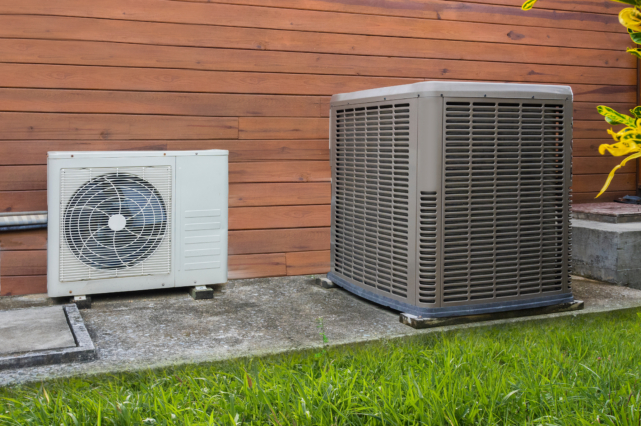
AC Vs Heat Pump: Which is Right for My Home?
Air conditioners and heat pumps are two of the most common types of cooling systems found in homes today. But if you’re considering replacing your current system with a new one, how can you decide between the two?
In the latest blog post from the team at Evergreen Heating and Cooling, we’ll discuss how central air conditioning systems and heat pumps work, and help you determine which system is best for your home. Be sure to contact us with any questions that you may have regarding either system.
What Is a Central Air Conditioner, and How Does it Work?
Central air conditioning systems are made up of three key components: a compressor, evaporator and condenser. Each part plays a vital role in the comfort and safety of your home on the hottest days of the year.
A central AC system works by drawing warm air from out of your home and passing it over the system’s evaporator coil, which has been cooled by refrigerant. When this happens, the air’s temperature is lowered and can be distributed throughout your home via its ductwork. After the air has been distributed, refrigerant is converted back to a liquid state in order to repeat the air conditioning process.
Air conditioning systems only provide cooling, meaning that you’ll also need to install a heating system for the colder months. Standard AC systems are typically paired with a furnace to provide year-round comfort and safety.
These systems are often less expensive than heat pumps, but you’ll need to factor in the cost of a furnace or boiler, as a central AC only provides cooling.
What Is a Heat Pump, and How Does it Work?
A heat pump system, contrary to what the name might imply, provides both cooling and heating throughout the year. This is typically what draws customers to heat pumps, as they can count on a single system to provide safe and comfortable temperatures throughout the entire year.
During the summer months, a heat pump acts just like a central air conditioner; it collects heat from inside your home and transfers it to the outside air. During the winter months, the process is reversed. Heat energy is collected from outside and transferred into your home to raise the temperature and protect your loved ones.
The simple operation of a heat pump allows it to operate at maximum energy efficiency, especially during the winter months. A heat pump doesn’t require any fuel to heat a home, providing lower heating bills throughout the season. Overall, these systems are highly efficient, effective and reliable.
It’s worth noting that on the coldest days of the year, a heat pump will typically require a backup heating system, such as a furnace, in order to continue to provide heat. When temperatures drop below freezing, your secondary heat source will kick on to supplement your heat pump.
Contact Evergreen Heating and Cooling for HVAC Installation in Waco, TX
Regardless of whether a heat pump or a central air conditioner is the best fit for your home, the team at Evergreen Heating and Cooling in Waco, TX has plenty of experience in expertly completing the installation process. We’ll gladly work with you to find the best system to meet your needs. Reach out to us today to learn more about either system, or to schedule an appointment for installation in the Waco, TX area.
